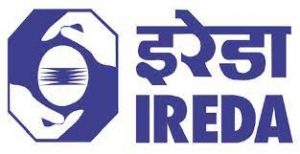Today Current Affairs: 21st January 2022 for UPSC IAS exams, State PSC exams, SSC CGL, State SSC, RRB, Railways, Banking Exam & IBPS, etc
Table of Contents
SaaRthi Mobile App:

Securities and Exchange Board of India (SEBI) has launched Saa₹thi – a mobile app on investor education.
- ‘R’ represents ‘₹’.
- It aims to create awareness among investors about the basic concepts of the securities market.
- The app will also explain about KYC process, trading and settlement, Mutual Funds (MF), recent market developments, investor grievances redressal mechanism, etc.
- A recent surge is seen in individual investors entering the market, and more importantly a large proportion of trading being mobile phone based.
- According to NSE (National Stock Exchange) data, the share of Individual investors increased to 45% in 2021 from 39% in 2020.
- The NSE is India’s largest financial market.
- Securities are financial instruments issued to raise funds.
- The primary function of the securities markets is to enable the flow of capital from those that have it to those that need it.
- Securities markets provide channels for allocation of savings to investments and thereby decouple these two activities.
- As a result, the savers and investors are not constrained by their individual abilities, but by the economy’s abilities to invest and save respectively, which inevitably enhances savings and investment in the economy.
- Eg. Equity, Debt securities, etc.
Devas-Antrix Deal:

The controversial deal between Indian Department of Space’s commercial entity Antrix and Bengaluru-based startup Devas Multimedia has been under the scanner for more than a decade now.
- The International Telecommunication Union granted India S-band spectrum in the 1970s.
- Handing Over of Spectrum to ISRO: By 2003, there was a fear that the spectrum would be lost if not used effectively;
- 40 MHz of S-band was given to the Department of Telecom (DoT) for terrestrial use.
- 70 Mhz was to be put to efficiently used by the Department of Space (DoS) or in effect to be used by Indian Space Research Organisation (ISRO).
- Global Negotiations for Growth of Communication Systems: Initially, an MoU was signed by Forge (a US Consultancy) and Antrix in July 2003 for use of the satellite spectrum for the growth of communication systems in India, but later a start-up was envisaged, and Devas Multimedia was floated.
- Following this, Devas Multimedia was able to attract foreign investors.
- In 2005, the deal was signed to provide multimedia services to mobile users using the leased S-band satellite spectrum.
- Under the deal, ISRO would lease to Devas two communication satellites (GSAT-6 and 6A) for 12 years.
- In return, Devas would provide multimedia services to mobile platforms in India using S-band transponders on the satellites.
- As a result of the deal, Devas introduced and utilised technologies like never before and was a huge revenue generator for Antrix.
- The deal was cancelled in 2011 on the ground that the auction of the broadband spectrum was mired in fraud
Indian Cellular And Electronics Association (ICEA):

A report by the Indian Cellular and Electronics Association (ICEA) has said that India’s policy of adopting high tariffs on the import of electronics components may prove to be counterproductive.
- ICEA is the apex industry body of the mobile and electronics industry comprising manufacturers.
- India has adopted high tariffs on the import of electronics components to reduce risks from global competition and save domestic companies.
- However, it may prove to be counterproductive to its schemes aimed at increasing domestic production of electronic products.
- All the countries have tried to encourage the domestic production of electronic goods in their geographies by adopting almost similar strategies such as attracting Foreign Direct Investment (FDI), improving domestic capabilities and competitiveness, increasing exports and then linking their markets with global value chains.
- Since 1980 China has improved its ranking in terms of office and telecom equipment export from 35 to 1, while Vietnam, which did not export any such electronic products up until 1990s has climbed the ladder to become the eight largest export in just 20 years.
- Similarly, Mexico, which was 37th in terms of electronics product export in the 1980s has steadily risen through the ranks to gain 11th place, a position it has maintained over the last two decades.
- Thailand: It ranked 45 in 1980, has also consolidated its position in the top 15 electronic product exporters, according to the report.
- India: On the other hand, India, which started at 40th position in the 1980s has gained and lost positions to reach 28th position by 2019.
Death By Hunger:

The Union government informed the Supreme Court (SC) that no starvation death (Death by Hunger) has been reported by any state or Union territory (UT) in recent years.
- The court is hearing a petition that highlights how starvation deaths continue to eat into the right to life and dignity of social fabric and a “radical” new measure like community kitchens need to be set up across the country to feed the poor and the hungry.
- The petition also referred to Rajasthan’s Annapurna Rasoi, Indira Canteens in Karnataka, Delhi’s Aam Aadmi Canteen, Anna Canteen of Andhra Pradesh, Jharkhand Mukhyamantri Dal Bhat and Odisha’s Ahaar Centre.
- The SC asked the Centre to explore the possibility of a “model” community kitchen scheme by which it could support the States to ensure food security for the poor.
- It asked the Centre to make a model scheme and leave it to the States to follow the guidelines depending on their individual food habits.
- Called for the creation of a national food grid by the Centre which is beyond the scope of the Public Distribution Scheme.
Eastern Swamp Deer:

The population of the vulnerable eastern swamp deer, extinct elsewhere in South Asia, has dipped in the Kaziranga National Park and Tiger Reserve.
- Officials attributed the decrease from 907 individuals in 2018 to 868 during the Eastern Swamp Deer Estimation on January 10 and 11 to two high floods in 2019 and 2020.
About swamp deer:
- The barasingha, also called swamp deer, deer is endemic to Kaziranga.
- The eastern swamp deer was once concentrated in the central Kohora and Bagori ranges of Kaziranga.
- IUCN status:
- State animal of Madhya Pradesh and Uttar Pradesh.
- Range: central and northern India and southern Nepal.
- India: Assam, Jumna River, Ganges River, Brahmaputra River, Madhya Pradesh, Utter Pradesh, and Arunachal Pradesh.
China’s Artificial Moon:

China has built an artificial moon research facility that is capable of lowering the gravity level using magnetism.
- The research facility is scheduled to officially launch later this year.
- This research facility is also said to be the first of its kind in the world.
Objective of the project:
- The idea is to make gravity “disappear” by using powerful magnetic fields inside a 60cm vacuum chamber.
- The mini-moon is about two feet in diameter and the artificial surface has been made with rocks and dust.
- The facility is located in the eastern city of Xuzhou, in Jiangsu province.
- Uses, applications and benefits of this facility:
- China plans to use this research facility to test out instruments and technology in a low-gravity environment similar to that of the moon, and see whether its experiments can be successful on the lunar surface.
- The research facility is also expected to help in determining the possibility of human settlement on the moon.
The idea to develop artificial moon facility has its roots in the Russian-born physicist Andre Geim’s experiments to levitate a frog with a magnet. The physicists later won a Nobel for this groundbreaking experiment.
- Magnetic levitation is certainly not the same as antigravity, but there is a variety of situations where mimicking microgravity by magnetic fields could be invaluable to expect the unexpected in space research.
Nusantara: Now The capital Of Indonesia

The capital of Indonesia is being shifted from Jakarta to East Kalimantan, and will be called Nusantara (situated to the east of Borneo island).
- East Kalimantan is 2,300 kilometres from Jakarta on the eastern side of Borneo island, shared by Indonesia, Malaysia and Brunei.
- The new capital will be located in the North Penajam Paser and Kutai Kartanegara regions. East Kalimantan is an area with immense water resources and habitable terrain.
- East Kalimantan is rich in flora and fauna.
- Therefore, many environmentalists and activists have warned that moving the capital to East Kalimantan would lead to massive deforestation and put the habitat of these animals and trees in danger and damage the ecosystem.
- Indonesia is not the first country to change its capital city.
- There has been a long list of countries that have changed their capitals for various reasons.
- Brazil changed its capital city from Rio De Janerio to Brasilia, a more centrally-located city, in 1960.
- In 1991, Nigeria hanged the country’s capital from Lagos to Abuja.
- Kazakhstan moved its capital city from Almaty, which is still its commercial centre, to Nur-Sultan in 1997.
- Myanmar changed its capital from Rangoon to Naypyidaw in 2005.
Anti-Defection Law:

Last week, Bahujan Samaj Party (BSP) chief Mayawati called for a more stringent anti-defection law amid a string of politicians switching parties ahead of the Uttar Pradesh assembly election beginning next month.
- The practice of politicians deserting parties just ahead of elections is not unusual. And every time there are defections, the anti-defection law, which penalises individual lawmakers for switching parties, comes into the picture.
- Tenth Schedule of the Indian Constitution Popularly known as the anti-defection law.
- It specifies the circumstances under which changing of political parties by legislators invites action under the law.
- It was added to the Constitution by the 52nd Amendment Act.
- It includes situations in which an independent MLA, too, joins a party after the election.
- The law covers three scenarios with respect to shifting of political parties by an MP or an MLA. These include:
- When a member elected on the ticket of a political party “voluntarily gives up” membership of such a party or votes in the House against the wishes of the party.
- When a legislator who has won his or her seat as an independent candidate joins a political party after the election.
- In the above two cases, the legislator loses the seat in the legislature on changing (or joining) a party.
- Relates to nominated MPs. In their case, the law gives them six months to join a political party, after being nominated. If they join a party after such time, they stand to lose their seat in the House.
- Under the anti-defection law, the power to decide the disqualification of an MP or MLA rests with the presiding officer of the legislature.
- The law does not specify a time frame in which such a decision has to be made.
- Last year, the Supreme Court observed that anti-defection cases should be decided by Speakers in three months’ time.
- However, Legislators may change their party without the risk of disqualification in certain circumstances. Exceptions:
- The law allows a party to merge with or into another party provided that at least two-thirds of its legislators are in favour of the merger.
- On being elected as the presiding officer of the House, if a member, voluntarily gives up the membership of his party or rejoins it after he ceases to hold that office, he won’t be disqualified.
SAMARTH:

Union Power Secretary chaired the second meeting of Steering Committee for SAMARTH (SUSTAINABLE AGRARIAN MISSION ON USE OF AGRO RESIDUE IN THERMAL POWER PLANTS)i.e. National Mission on Use of Biomass in coal based thermal Power Plants
- He reviewed the status of bio-mass co-firing and progress of the actions being taken to promote the co-firing in the thermal power plants in the meeting.
- In order to reduce stubble burning and to reduce carbon footprint of Thermal Power Plants while increasing the income of farmers, Government of India has taken various proactive step with the establishment of National Mission on Use of Biomass in Thermal Power Plants.
- The agro-residue/ biomass earlier considered as a waste product has now begun to produce zero-carbon electricity for the citizens of the country.
- In turn farmers are getting additional income by selling the stubble/ biomass for conversion into torrefied/ non-torrefied biomass pellets.
- For overall monitoring of the Mission and to facilitate the Mission on inter-ministerial issues/constraints, a Steering Committee under the chairmanship of Secretary, Ministry of Power (MoP) has been constituted.
- Ministry of Power’s policy on “Biomass Utilization for Power Generation through Co-firing in Coal based Power Plants” issued in October 2021 mandates all thermal power plants in the country to use 5 to 10% biomass along with coal for power production.
Indian Renewable Energy Development Agency Limited (IREDA):

The Cabinet Committee on Economic Affairs approved the equity infusion of Rs.1500 crore in Indian Renewable Energy Development Agency Limited (IREDA).
- This equity infusion will help in employment generation of approximately 10200 jobs-year and CO2 equivalent emission reduction of approximately 7.49 Million Tonnes CO2/year.
- Additional equity infusion of Rs.1500 crore by Government of India will enable IREDA:
- To lend Rs.12000 crore approximately to the RE sector, thus facilitate the debt requirement of RE of additional capacity of approximately 3500-4000 MW.
- To enhance its networth which will help it in additional RE financing, thus contributing better to the Government of India targets for RE.
- To improve the capital-to-risk weighted assets ratio (CRAR) to facilitate its lending and borrowing operations.
- IREDA, a mini ratna (Category-1) company under the administrative control of MNRE was set up in 1987 to work as a specialised non-banking finance agency for the Renewable Energy (RE) sector.
- IREDA with more than 34 years of techno-commercial expertise, plays a catalytic role in the RE project financing which gives confidence to the FIs/banks to lend in the sector.
National Commission For Safai Karamcharis (NCSK):

The Union Cabinet has approved the extension of the tenure of the National Commission for Safai Karamcharis (NCSK) for three years beyond 31.3.2022.
- The total implication of the extension for three years would be approximately Rs.43.68 crore.
- The major beneficiaries would be the Safai Karamcharis and identified manual scavengers in the country since the NCSK for 3 more years beyond 31.3.2022. The number of Manual Scavengers identified under the MS Act Survey as on 31.12.2021 is 58098.
- The NCSK was established in the year 1993 as per the provisions of the NCSK Act 1993 initially for the period upto 31.3.1997.
- Later the validity of the Act was initially extended upto 31.3.2002 and thereafter upto 29.2.2004. The NCSK Act ceased to have effect from 29.2.2004.
- After that the tenure of the NCSK has been extended as a non-statutory body from time to time through resolutions. The tenure of the present Commission is upto 31.3.2022.
- As per the provisions of the Prohibition of Employment as Manual Scavengers and their Rehabilitation Act, 2013, the NCSK has been assigned the work to monitor the implementation of the Act, tender advice for its effective implementation to the Centre and State Governments and enquire into complaints regarding contravention/non-implementation of the provisions of the Act.
Houthis:

Two Indians and a Pakistani were killed and six other people including two Indians were injured in an attack by suspected drones on three petroleum tankers at an oil facility in Abu Dhabi, United Arab Emirates (UAE).
- The attack was claimed by the Iran-backed Houthi rebels of Yemen. Indians were not the target of the attack.
- Yemen is located at the junction of the Red Sea and Gulf of Aden, its coastline commanding the strategic strait of Bab al-Mandab.
- The country has been wracked by civil war for more than seven years now, and the Houthis control the western part of the country, including the capital Sana’a.
- The war involves several nations directly or indirectly, and the attack in Abu Dhabi spotlights the multiple conflicts that are playing out in Yemen and the wider region as a whole.
- The Houthis are a large clan belonging to the Zaidi Shia sect, with roots in Yemen’s northwestern Saada province. Zaidis make up around 35 per cent of Yemen’s population.
Antimicrobial Resistance (AMR):

Hundreds of thousands of deaths occur today due to previously treatable infections — such as lower respiratory and bloodstream infections — because the bacteria that cause them have become resistant to treatment.
- A comprehensive estimate of the global impact of antimicrobial resistance (AMR), covering 204 countries and territories and published in The Lancet, has found that 1.27 million people died in 2019 as a direct result of AMR, which is now a leading cause of death worldwide, higher than HIV/AIDS or malaria.
- The Global Research on Antimicrobial Resistance (GRAM) report used statistical modelling to estimate deaths linked to 23 pathogens and 88 pathogen-drug combinations.
- Apart from 12.7 lakh deaths caused directly by AMR (these would not have occurred had the infections been drug-susceptible), another 49.5 lakh deaths were associated with AMR (a drug-resistant infection was implicated, but resistance itself may or may not have been the direct cause of death).
- HIV/AIDS and malaria were estimated to have caused 8.6 lakh and 6.4 lakh deaths respectively in 2019.
- Of the 23 pathogens studied, drug resistance in six (E coli, S aureus, K pneumoniae, S pneumoniae, A baumannii, and P aeruginosa) led directly to 9.29 lakh deaths and was associated with 3.57 million.
- One pathogen-drug combination – methicillin-resistant S aureus, or MRSA – directly caused more than 1 lakh deaths.
- Resistance to two classes of antibiotics often considered the first line of defence against severe infections – fluoroquinolones and beta-lactam antibiotics – accounted for more than 70% of deaths caused by AMR.




